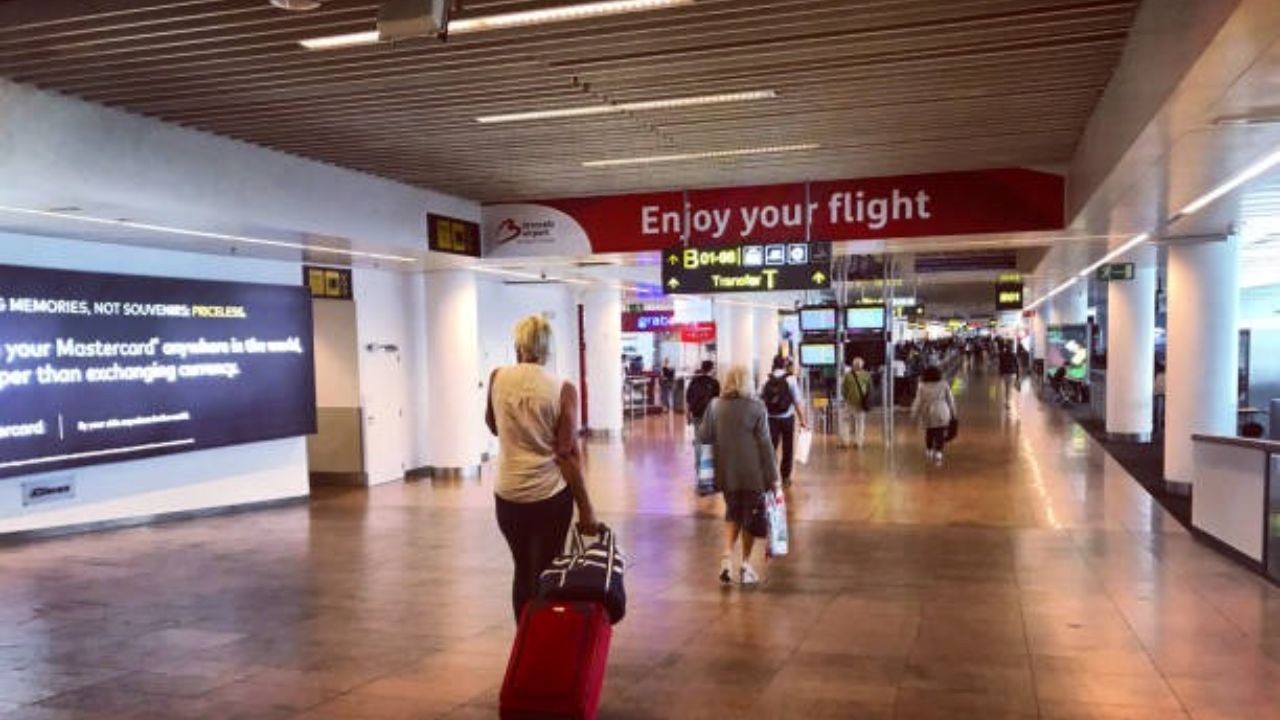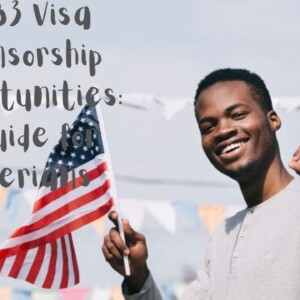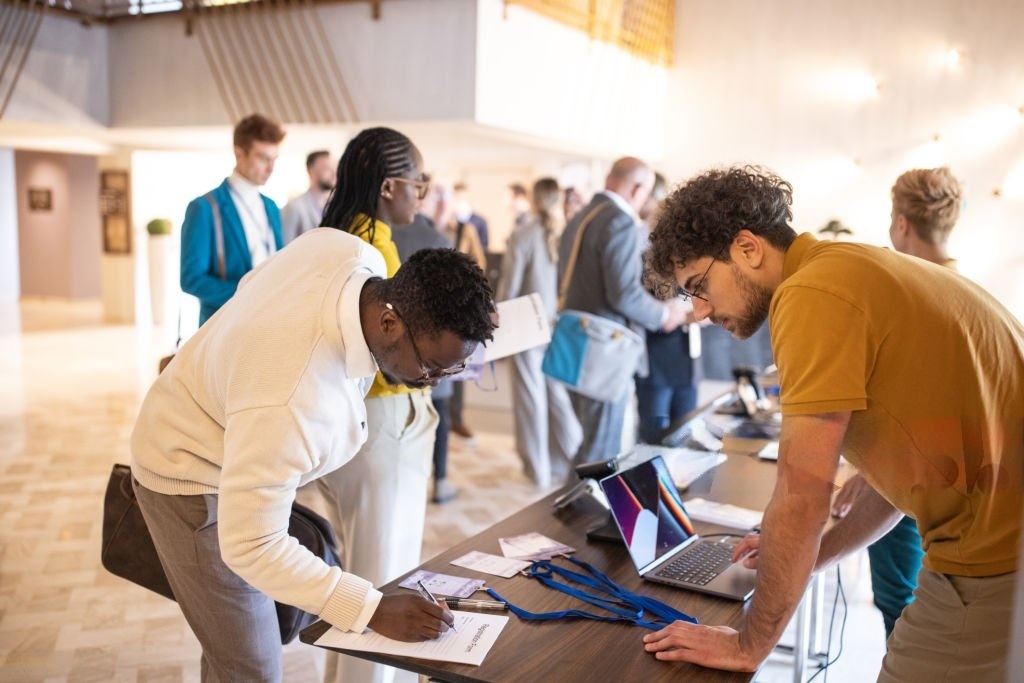Traveling abroad can be a dream come true for many Nigerians, but the reality is that the money can run into millions. Whether you are traveling solo or with family, you must prepare a budget. To ease the burden on you, we will provide a comprehensive guide on how to fund your travel so that you don’t regret your actions later.
Nigerians planning to Japa must understand that it requires more than just an international passport and a packed suitcase. It involves meticulous financial preparation to ensure that they don’t get stuck in a foreign land.
Unplanned travel can be messy, especially when you don’t have any friends or relatives in that country. To avoid a situation where you are on your own (OYO), it is expedient that adequate financial planning be prioritized more than anything else.
Being able to plan and set up a budget helps; it’s the power to direct your money towards what is a priority to you, be it visiting certain tourist attractions, eating out, or trying new experiences. Budgeting is useful to make the most of your time without missing out on the things you need while on a trip.
Difficulties Nigerians face in financing travel
Apart from getting a visa from Nigeria, the current exchange rate in Nigeria has not been stable for some time now. As of May 21, 2024, the naira to the United States dollar is 1446, while £1.000 GBP = ₦1,803 NGN
The sad part of this is that customers are to pay in USD and not Nigerian naira when booking international flights from Nigeria.
The most hits are on individuals going to study abroad. A recent update shows that most schools abroad, especially those in Canada and the UK, are currently experiencing low applications from Nigerian applicants.
It may be quick for people to attribute it to the UK new immigration rules. The tuition fee abroad is a major impediment because most people are financially challenged with low wages and a high cost of living, which makes saving for travel very difficult.
These economic challenges call for proper planning and efficient use of funds to attain travel objectives. Such realities are important for Nigerians who seek to travel to other countries in search of better opportunities.
How to Fund Your Travel: A Pro-Active Step to Take

1. Calculating Total Costs
The first step towards managing your travel expenses is to plan your finances properly. Begin with the overall expenses: travel costs (airplane tickets), accommodations, transfers, and other attractions.
It is advisable to get accurate estimates through the use of online tools and travel websites. Next, find out the average cost of living in your destination country, including the cost of food, transport, etc.
For instance, if you will need 10 million naira, you can add an extra 1 million, as the case may be. With this amount, even should the exchange rate change, it will not be much of a concern to your overall budget.
This plays a significant role in setting a realistic budget. Also, provide for emergencies that may occur, such as accidents, sicknesses, and changes of plans, among others, by having an emergency fund.
2. Saving Strategies
When it comes to financing your travel plans, you must think and act smart. What this implies is that you should have a savings culture that will help fund your travels.
Start by opening a special travel savings account. This makes it possible to have a separate account for the travel funds to be separated from the everyday accounts to monitor the progress of the fund.
Another good way is to reduce unnecessary expenses to save more. For instance, you could cut on expenses such as eating out, shopping or buying luxury products in a bid to save more to cater for the travel expenses.
No one is saying you should ‘starve to death’. The reality is that every kobo counts. So, if you can cut down on unnecessary spending, the better for you.
You can also opt to work more hours at your present job or get a side job. Freelance work, tutoring, or selling handmade products are perfect ways to get an additional income.
3. Seeking Out Funding Opportunities
There are numerous travel grants and scholarships available for Nigerians intending to travel abroad, either through conferences, study, or tourism. Applicants from Nigeria can apply for conference travel grants, while there are also various funding opportunities for international students.
Websites such as MyJapastory.com, Scholarshippositions.com, and AfterSchoolAfrica.com provide immigration and scholarship updates.
This option is for individuals who want to apply for international scholarships. However, it is important not to put all your eggs in one basket. Sometimes, international students might not get a fully-funded scholarship but a waiver or discount. In addition, to get a scholarship, applicants must have an excellent result as well as a good application.
4. Alternative Funding Sources
If you couldn’t get a scholarship, one way to fund your travels is to seek other funding options apart from a scholarship. Since the main hurdle is how to secure the necessary funds, these alternative funding options can help you achieve your travel goals. They are:
i. Borrowing from family or friends
Borrowing from friends or relatives is one of the ways through which one can easily finance his or her travel. This method is good for the following reasons:
1. Low or No Interest: Unlike loans taken from financial institutions, the money borrowed from friends or family members attracts very low or even no interest, which makes it cheaper to use.
2. Flexible Repayment Terms: When you borrow from a family member or friend, the repayment term is always flexible. This isn’t business, but a way of assisting. The interesting thing is that there may not be any form of interest rate. However, there should be a written agreement.
3. Trust and Support: Your friends and family are likely to be more sympathetic and willing to financially support your travel plans. This method should be employed with a certain amount of caution.
ii. Local Savings Plans
One of the most efficient ways to ensure that you get the funds to finance your travel is by budgeting and saving ahead of time. The two typical local savings practices in Nigeria are cooperative societies (Esusu and Ajo) and bank savings schemes.
iii. Cooperative Societies (Esusu/Ajo)
Among the traditional savings methods, the most popular one in Nigeria is cooperative societies, locally called Esusu or Ajo, whereby people contribute a fixed amount of money regularly.
The money is then accumulated and given out to any one member of the group on a rotational basis. Here’s why this method is popular: Here’s why this method is popular:
1. Discipline: Savings made through regular contributions foster disciplined saving behavior, which makes it easy to achieve regular savings.
2. Access to Lump Sum: At your turn to receive the collective amount, there is a lump sum that can be used for travel expenses.
Before joining an Esusu or Ajo, always make sure that the group is reliable to avoid any form of problem in the event.
iv. Bank Savings Schemes (Term Deposits)
Bank savings plans, particularly fixed deposits, are another effective way to save for travel. If you are looking for ways to fund your travels, you can go for a fixed deposit account or invest in bonds, treasury bills, etc.
Fixed deposits attract a relatively higher interest rate than normal savings accounts, so the money will grow more.
Fixed Terms: A fixed deposit allows you to lock your money for a given period, thus discouraging unnecessary spending.
Useful Sites For Funding Travel
Traveling is relatively expensive and needs to be funded; the following are some websites that provide opportunities for Nigerians who wish to travel to other countries.
An example of such platforms includes GoFundMe, through which people can start campaigns to raise money from friends, families, and the public.
Kickstarter is another example of how you save to fund your travel, especially for creative ideas that allow people to support projects financially.
For those interested in scholarships or grants, it is recommended to visit websites like scholarships.com and Fastweb, which offer vast lists of valuable links where students can find funding information.
In addition, Workaway and HelpX provide a chance to travel the world volunteering in exchange for food and shelter, which eliminates the expenses of accommodation and food.
If you would like to work remotely and travel while doing so, websites such as Upwork or Freelancer allow you to apply for such jobs. These platforms can assist Nigerians in funding their travel dreams via various available funding options.
Conclusion
Finding the money for your travels is not just about obtaining funds; it is also about building the right behavior that enables you to achieve your goals.
From devising ways to automatically save money, looking for another source of income, or finding ways to access free funds such as through scholarships or grants, among others, there are many ways out there.
The advice provided in this guide is practical, realistic, and particular to the Nigerian traveler. This way, anyone interested can get some idea on how to best save and arrange for their travels abroad.







Pingback:
Pingback:
Pingback:
Pingback: